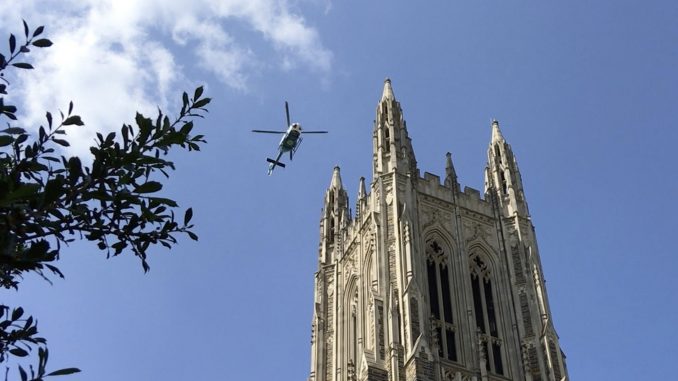
DURHAM — The man who blew the whistle on Duke University for the submission of fabricated and falsified data used for obtaining federal research grants will receive $33,750,000 or around 30 percent of the overall settlement of $112.5 million.
The case, filed by Joseph Thomas, a former Duke research analyst in the pulmonary division, alleged that false or fabricated data for 30 grants were submitted by Erin Potts-Kant while working in the Airway Physiology lab of another defendant named William Foster.
The suit states that, “During her eight years as a Duke employee, Potts-Kant fabricated and/or falsified ‘nearly all’ of her grant-funded flexiVent and multiplex experiments,” in order for Duke University to gain grants or publish articles.
The lawsuit alleged the submissions took place between 2006 and 2013, but the announced settlement covers five more years, ranging 2006 to 2018. Officials from Duke University said that they looked at 50 possible cases and that some misconduct involving Potts-Kant had been caught in 2013. Potts-Kant was ultimately fired for embezzlement.
Duke University issued a statement which said that the $112.5 million settlement payment would ‘include reimbursement of the grants’ obtained due to the falsified data, yet the total of taxpayer-funded grants totaled around $200 million.
“We expect Duke researchers to adhere always to the highest standards of integrity, and virtually all of them do that with great dedication,” said President Vincent E. Price in a statement. “When individuals fail to uphold those standards, and those who are aware of possible wrongdoing fail to report it, as happened in this case, we must accept responsibility, acknowledge that our processes for identifying and preventing misconduct did not work, and take steps to improve.”
Thomas, the whistleblower, is eligible for the sizeable payout because the government declined to take the case.
According to a press release from the U.S. Department of Justice, the suit was part of a “coordinated effort” with the multiple other departments including the Civil Division’s Commercial Litigation Branch and the U.S. Attorney’s Offices for the Middle District of North Carolina and the Western District of Virginia.
But the suit was filed by Thomas and his attorneys from the Virginia law firm Gentry Locke Rakes & Moore.
The lawsuit was filed under the qui tam or whistleblower provision of the False Claims Act and under that act, the government can either take over the whistleblower’s suit or the whistleblower sues on the behalf of the government.
In the latter case, where the whistleblower sues on behalf of the government, the amount of the settlement that is shared with the whistleblower is higher. That is what happened here.
“If the government had taken the case,” said Gary Jackson an attorney with the Farin Law Offices. “Then there would have been a limitation of 15-25% instead of 30%.”
“It’s very rare for a whistleblower to get 30%,” Jackson said. “It happens when the government declines to take the case and the private lawyers pursue the case.”
Jackson thinks that cases like this one might make it more likely others in similar situations will come forward.
“In looking ahead,” said Jackson. “I think settlements like this — a case like this — have the effect of getting the attention of universities and their donors. It’s a wake-up call.”




